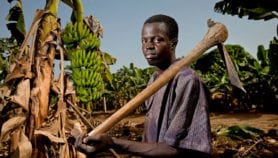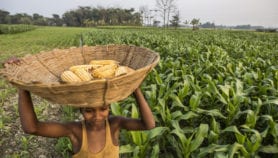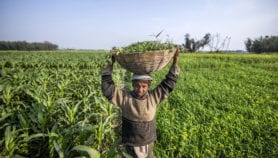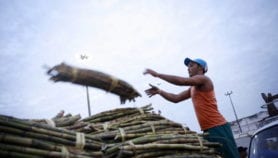By: T.V. Padma
Send to a friend
The details you provide on this page will not be used to send unsolicited email, and will not be sold to a 3rd party. See privacy policy.
[NEW DELHI] The future prospects in India for Bt cotton, which has been genetically modified to resist attack by the bollworm pest, have been clouded by doubts over the crop’s benefits.
A parliamentary committee set up to review the policies of the agriculture ministry recently reported that it is “perturbed by the wide disparity” between the crop’s actual performance and the claims made by its promoters.
In a parallel development, the Genetic Engineering Approval Committee (GEAC) — which clears cultivation of transgenic crops in the country — rejected a request to permit the cultivation of the Bt cotton variety “Mech 915” in northern India, saying it was susceptible to leaf curl virus, which is prevalent in that part of the country.
Bt cotton is patented by the US company Monsanto and is distributed in India by the Maharashtra Hybrid Seed Company. It was approved for cultivation in India in March 2002 amid fierce protest by environmentalists.
But in a review of the crop’s performance over the past year, the parliamentary committee report says that Bt cotton does not appear to be significantly better than standard varieties in resisting bollworm — its unique selling point.
The committee accepts that the crop does appear to require less insecticide than its traditional counterparts. But it also estimates that output during last year’s summer was only 20 per cent greater than the yield of indigenous varieties.
Given continuing uncertainty over its overall value, the committee recommends that the government should arrange for an independent team of experts to examine the performance of Bt cotton, adding, “the risk of reducing biodiversity and other environmental hazards does not make the sowing of Bt cotton a sensible proposition”.
The committee’s judgement, combined with the decision by GEAC, will provide a boost to environmentalists, who have been arguing that claims of Bt cotton’s superior qualities in government-supervised trials do not match field performance during 2001-2002.
In March, the agriculture minister and chairman of the Andhra Pradesh state cotton committee, where Bt cotton is commercially grown, stated that the crop had failed in many parts of the state — the first official indication that all is not well.
GEAC chairperson Sushma Choudhary says that despite reports of poor performance of Bt cotton by some state governments and agencies, one season’s statistics are not enough to withdraw approval for its cultivation.













